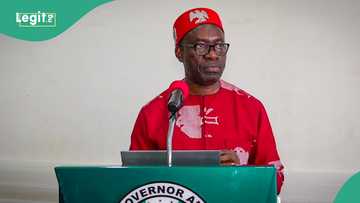FG Unveils New Curriculum for Primary and Secondary Schools in Nigeria, Lists Changes
- The Federal Government has completed a sweeping review of Nigeria’s school curriculum, targeting basic, senior secondary, and technical education
- Officials say the changes aim to make learners “future-ready” by improving content and reducing subject overload
- The revised structure introduces new subject allocations across all levels, reflecting a shift towards deeper learning and streamlined instruction

Source: Facebook
The Federal Government of Nigeria has unveiled a revised curriculum structure for basic, senior secondary, and technical education, aimed at equipping learners with the skills and knowledge required to thrive in a rapidly evolving world.
Nigerian school curriculum review targets future-ready learners
In a statement released on Sunday and signed by Boriowo Folasade, Director of Press and Public Relations at the Ministry of Education, officials confirmed that the curriculum overhaul had been completed following a comprehensive review process.
The announcement was made by the Minister of State for Education, Professor Suwaiba Said Ahmad, on behalf of the Minister of Education, Dr. Maruf Alausa, during a briefing in Abuja.
According to Prof. Ahmad, the review was conducted in collaboration with major education stakeholders, including the Nigerian Educational Research and Development Council (NERDC), the Universal Basic Education Commission (UBEC), the National Senior Secondary Education Commission (NSSEC), and the National Board for Technical Education (NBTE).
She emphasised that the exercise was not limited to reducing the number of subjects but was designed to enhance content quality, foster deeper learning, and alleviate academic overload for pupils and students across the country.
Subject Allocation Adjusted Across Education Levels
The revised curriculum introduces new subject allocations tailored to each educational stage:
• Pupils in Primary 1–3 will study between nine and ten subjects.
• Those in Primary 4–6 will take between ten and twelve subjects.
• Junior secondary students may offer between twelve and fourteen subjects.
• Senior secondary students will be required to take eight to nine subjects.
• Technical school students will study between nine and eleven subjects.
The Ministry stated that these adjustments are part of a broader strategy to streamline learning and ensure that Nigerian students are better prepared for future academic and professional challenges.
Education experts have welcomed the move, noting that the curriculum reform reflects a growing global emphasis on learner-centred education and skill development.
Speaking with Legit.ng, Iman Muhammad, an educationist, shared her thoughts on the unveiling:
“The curriculum reform is a welcome development. It shows a shift towards a thoughtful, learner-centred education which is long overdue. If properly implemented, it could ease the pressure on students and help build stronger foundation.”
FG launches website to recruit 100,000 youths
Legit.ng earlier reported that the President Bola Ahmed Tinubu-led Federal Government has launched a website to recruit and train 100,000 Nigerian youths annually.
The youths will be trained in financial literacy, global trade, entrepreneurship, and investing. The training programme will be done in collaboration with Investonaire Academy.
The Director, Information & Public Relations, Ministry of Youth Development, Mrs. Omolara Esan, disclosed this in a statement issued in Abuja. As reported by the Nigerian Tribune, Esan said registration has commenced for a nationwide free financial education programme.
Source: Legit.ng





